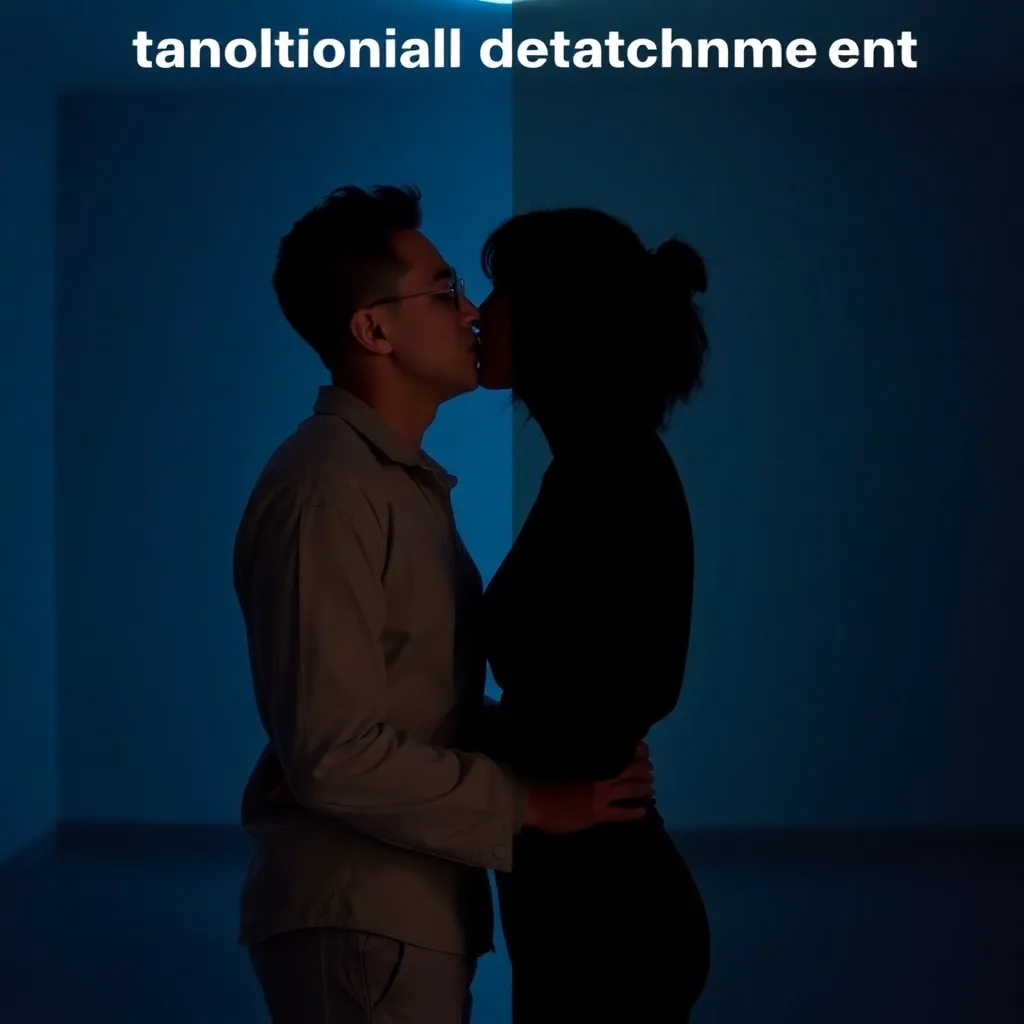Relationships can be a beautifully intricate dance, but when a partner exhibits narcissistic traits, the steps can become confusing and emotionally taxing. If you’ve found yourself questioning the intentions behind your partner’s actions, especially something as intimate as kissing, you’re not alone in your quest for understanding. Recognizing the nuances of such interactions is crucial, as it can help you navigate the complexities of your relationship with more clarity and confidence.
The topic of whether narcissists enjoy kissing is not only intriguing but also deeply relevant for those who may feel unsure about the authenticity of their partner’s affections. Understanding the motivations behind a narcissist’s actions can offer you valuable insights into their behavior, and more importantly, help you make informed decisions about your emotional well-being. In this article, you’ll discover the psychological underpinnings of narcissistic behavior and how it can manifest in intimate moments like kissing.
As we delve into the intricacies of this topic, you’ll gain a deeper comprehension of what kissing truly means for someone with narcissistic tendencies. We’ll explore the potential emotional disconnects, the possible reasons behind their actions, and how these might impact you personally. Our aim is to equip you with knowledge and understanding, fostering a space where you feel supported and empowered to address your relationship dynamics with compassion and wisdom.
1. Exploring Narcissistic Affection

Understanding how a narcissist shows affection can be quite complex. While they may engage in affectionate gestures like kissing, their intentions are often rooted in a desire for control or validation rather than genuine emotion.
In many relationships, a narcissist might use physical affection as a tool to reinforce their partner’s dependency. For instance, they may be particularly affectionate in public settings to create an image of a perfect relationship, even if their private interactions tell a different story.
Experts suggest that the key to navigating affection with a narcissist is to remain aware of their underlying motivations. By recognizing these patterns, partners can better manage their expectations and protect their emotional well-being.
Ultimately, it’s crucial to remember that while a narcissist’s affection can feel genuine at times, it’s often a means to an end. This awareness can empower partners to make informed decisions about their relationship dynamics.
2. Narcissists and Physical Intimacy

When it comes to narcissists and physical intimacy, the dynamics can be both intriguing and complex. In many cases, a narcissist’s approach to intimacy is more about fulfilling their own desires rather than fostering a meaningful connection. This can often lead to scenarios where their partner feels emotionally neglected, even if physical affection is present.
For instance, a partner might notice that while a narcissist enjoys kissing, it often lacks emotional depth. This is because narcissists can view such acts as a means to an end, using physical intimacy as a tool for validation or control. Imagine a partner who finds themselves questioning the sincerity of these gestures, feeling as though they’re a performance rather than an expression of love.
In relationships with narcissists, partners may find themselves wondering if their needs for genuine connection are truly being met. Experts suggest that these individuals often use physical closeness to maintain a sense of control or superiority in the relationship. It’s essential to recognize these patterns to understand whether the intimacy experienced is genuinely reciprocal or primarily self-serving for the narcissist.
In light of these dynamics, it’s crucial to prioritize your own emotional well-being and communicate openly about your needs. If you find yourself feeling unfulfilled, consider seeking the guidance of a relationship counselor to explore these feelings further.
3. Kissing: A Narcissist’s Perspective

A narcissist’s approach to kissing is often driven by their need for validation and admiration. They may see kissing not as a mutual exchange of affection, but as a way to reinforce their own self-image. For instance, in a relationship where one partner is a narcissist, the act of kissing might be used strategically to assert control or to manipulate emotions. This can leave the non-narcissistic partner feeling emotionally confused and questioning the authenticity of their connection.
From a narcissist’s perspective, kissing can also be a tool for gaining attention and admiration from others. Imagine a partner who lavishes kisses in public settings to draw admiration from onlookers, rather than to express genuine affection to their partner. This behavior highlights the narcissist’s desire to be seen as a perfect partner, even if the intimacy is only skin-deep. Such actions can lead to a partner feeling used or unappreciated, as the affection appears performative.
Interestingly, experts suggest that a narcissist may not always be aware of how their actions impact their partner. A psychologist might explain that narcissists often lack the empathy to understand their partner’s emotional needs, which can make their kisses feel empty or self-serving. Partners of narcissists should consider discussing their emotional needs openly, encouraging a more balanced and genuine exchange of affection.
Ultimately, recognizing the motivations behind a narcissist’s kiss can empower you to navigate your relationship more effectively. While kisses from a narcissist might not always stem from genuine affection, understanding this perspective can help you make informed decisions about your emotional well-being. By addressing these challenges head-on, you can strive towards a relationship that meets your needs and respects your boundaries.
4. Emotional Detachment in Kissing

Emotional detachment often plays a significant role when a narcissist engages in kissing. While their lips may connect, their heart might remain at a distance, keeping the act purely physical. This detachment can be confusing for their partner, who may feel the encounter lacks the depth and connection they crave.
In real-world relationships, this emotional gap can lead to feelings of uncertainty and insecurity. Imagine being kissed passionately, yet sensing that the person you’re with is miles away emotionally. This scenario is not uncommon for those involved with narcissists, who may prioritize their own needs and perspectives over genuine emotional exchange.
Experts suggest that a narcissist’s focus during kissing is often more about what they gain from the interaction. They might seek validation, control, or simply enjoy the sensation without the emotional investment. For those on the receiving end, recognizing this pattern can be the first step in addressing any misalignment in expectations.
To foster a healthier relationship, it’s vital to set boundaries and express your need for emotional intimacy. By doing so, you can gauge whether your partner is willing to meet you halfway. Always remember that while kissing can be a beautiful expression of love, it should ideally be accompanied by mutual emotional engagement.
5. Interpreting Narcissistic Romantic Gestures

Understanding a narcissist’s romantic gestures can be quite complex, as they often intertwine genuine affection with self-serving motives. For instance, a kiss might seem passionate, but it’s important to question whether the gesture is driven by a desire to connect or simply to assert control over their partner.
Sometimes, narcissists use these gestures to create a facade of a loving partner, which can be confusing for those on the receiving end. A partner might feel cherished momentarily, only to be left questioning the sincerity of the interaction soon after.
In relationships with narcissists, the line between genuine affection and manipulation can be blurry, making it challenging to interpret their true intentions. To gain clarity, one might consider how consistent these gestures are with the narcissist’s overall behavior and whether they contribute positively to the relationship.
Experts suggest paying attention to patterns rather than isolated incidents when interpreting these gestures. A consistent pattern of self-centered behavior, despite seemingly affectionate actions, can reveal the underlying dynamics at play.
Ultimately, recognizing these patterns can empower individuals to make informed decisions about their relationships, ensuring that their emotional needs are met. By understanding the motives behind romantic gestures, one can better navigate the complexities of a relationship with a narcissist.
Conclusion: Creating Beautiful Outdoor Spaces
In exploring whether narcissists enjoy kissing, we uncovered five key relationship insights. Firstly, narcissists often view kissing as a tool for manipulation rather than an intimate expression of love. Secondly, their enjoyment is typically tied to personal gain rather than mutual connection. Thirdly, narcissists may use affection to bolster their self-esteem. Fourthly, their emotional detachment can lead to superficial relationships. Lastly, understanding these behaviors can empower you to navigate relationships more effectively.
As an actionable step, take time to reflect on your own relationships. Assess whether your needs for genuine connection and affection are being met, and consider setting healthy boundaries if necessary.
Remember, knowledge is power. Save or bookmark this article for future reference, ensuring these insights are readily available as you navigate your personal connections.
Looking ahead, embracing these relationship insights can pave the way for deeper, more fulfilling connections. By understanding the dynamics at play, you’re better equipped to foster relationships that are genuine and nurturing. Keep striving for that mutual respect and emotional depth, and watch your relationships flourish.
